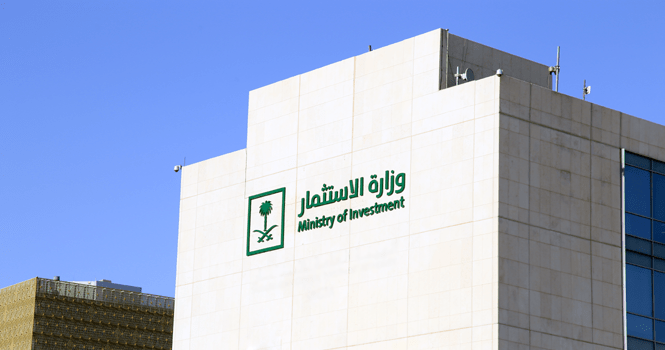What is Saiga Certificate?
If you’re looking to enhance your language skills and boost your career prospects, getting certified can be a great way to achieve your goals. One such certification is the Sagia Certificate in English Language.
Developed by the Saudi Arabian General Investment Authority (Sagia), this certificate is aimed at non-native English speakers who want to improve their language proficiency and gain a competitive edge in the global job market.
In this blog post, we’ll take a closer look at the Sagia Certificate in English Language and explore how it can benefit you personally and professionally.
1. Understanding the Importance of a SAGIA Certificate
To start a business in Saudi Arabia, you will need to obtain a SAGIA certificate. This certificate is issued by the Saudi Arabian General Investment Authority and is a necessary document for any foreign investor who wishes to set up a business in the country. It grants permission for your foreign company to own a business in Saudi Arabia, which is an essential requirement to begin the process of company setup and license registration.
Without a SAGIA certificate, you cannot legally own or operate any business in Saudi Arabia. It is imperative to obtain one before proceeding with any other stages of the process. The certificate will make you the sole proprietor of your business, giving you full control and authority over its operations. It offers various benefits, including a five-year validity, which means that you only need to go through the application process once every five years.
A SAGIA certificate also enables you to bypass the requirement of having a Saudi sponsor or partner. This means that your foreign company can independently serve the local market without any restrictions, allowing you to have complete control over your business processes.
In summary, having a SAGIA certificate is of utmost importance, as it is a prerequisite for any foreign investor who wishes to set up a business in Saudi Arabia. Without one, you cannot legally operate a business in the country. It ensures sole ownership of your business, allows you to bypass the Saudi sponsor requirement, and grants permission for your foreign company to own a business in Saudi Arabia. Obtain a SAGIA certificate to ensure a smooth and legal process for your business setup.
2. MISA License Requirements and Procedures
To obtain a MISA license, which is now the former SAGIA license, you must first apply through the Saudi Arabian General Investment Authority (SAGIA). This license is required for foreign investors looking to start a business in Saudi Arabia. The registration fee for this license is SAR 2,000 per year. It’s important to note that before obtaining the MISA license, you must first obtain a foreign investment license from SAGIA.
Once you have obtained the necessary licenses, you can begin the process of setting up your business. This process typically takes around two weeks to a month to complete. The registration process involves submitting a variety of documents such as articles of association, shareholders’ agreement, commercial registration, and the investment license. Upon registration, you will receive a temporary license to operate your business.
It’s important to have a clear business plan and include local partnerships to meet the Saudization requirements. Saudization requirements mandate the hiring of local workers to promote employment opportunities for Saudi citizens, and the inclusion of Saudi employees in the management structure of the business.
Obtaining a MISA license is essential for foreign investors looking to establish a business in Saudi Arabia. It’s important to ensure that you meet all of the requirements and follow the correct procedures to avoid any delays in the establishment of your business.
3. Timeframe for Company Setup and License Registration
When it comes to setting up a business in Saudi Arabia as a foreign investor, one of the most important factors to consider is the timeframe for company setup and license registration. This process usually takes several weeks to several months, depending on the type of business entity chosen and the completeness of the required documentation.
To begin, it is important to obtain a SAGIA certificate, which is required for all foreign investors in Saudi Arabia. This certificate allows for the establishment of a business entity and the registration of the necessary licenses. To obtain a SAGIA certificate, you must fulfill certain requirements and follow the necessary procedures as outlined by the Ministry of Investment (MISA).
Once you have obtained your SAGIA certificate, you can begin the process of setting up your business entity, which can range from a limited liability company to a joint-stock company. The timeframe for company setup and registration can vary depending on the chosen entity, the number of shareholders, and other factors.
In addition to entity setup, you will also need to register for the necessary licenses to operate your business. This includes registering with the local municipality, obtaining a commercial registration certificate, and obtaining any necessary sector-specific licenses.
The timeframe for license registration can also vary depending on the type of license and the completeness of the required documents. It is important to work closely with a legal advisor or business consultant to ensure that all necessary documents are submitted in a timely manner and that the process is completed as quickly as possible.
Overall, the timeframe for company setup and license registration in Saudi Arabia can be a bit lengthy, but it is a necessary step for all foreign investors looking to establish a business in the country. By understanding the requirements, procedures, and business restrictions, you can help ensure a smoother and more efficient process for your business setup and license registration.
4. Share Capital Requirements for Obtaining a SAGIA Certificate
To obtain a SAGIA certificate, it is important to understand the share capital requirements. The minimum share capital for a limited liability company is SAR 500,000, while for a joint-stock company, it is SAR 10 million. However, for certain sectors such as tourism, ICT, and renewable energy, the minimum share capital may be reduced.
It is essential to have the share capital in place before applying for a SAGIA certificate. The capital must be deposited in a Saudi bank account and a notarized certificate of deposit must be obtained. The funds in this account should be used exclusively for business purposes.
In addition to the share capital, it is important to have a solid investment plan that outlines the project’s financial forecasts and the intended use of the funds. Saudization requirements must also be considered and ensured, and a certain percentage of the company’s workforce must be Saudi nationals.
Once the share capital and investment plan requirements are met, the next step is to submit the application for a SAGIA certificate. It is important to follow the procedures and provide all the necessary documents accurately and entirely to avoid delays or rejection.
Obtaining a SAGIA certificate is a crucial step for foreign investors to establish their businesses in Saudi Arabia. By fulfilling the share capital requirements and ensuring compliance with all regulations, foreign investors can set the foundation for a successful venture in the kingdom.
5. Business Restrictions for Foreign Investors in Saudi Arabia
If you are a foreign investor looking to set up a business in Saudi Arabia, it is important to be aware of the business restrictions that exist. Firstly, certain industries are restricted to Saudi Arabian nationals only, these include banking, telecommunications, and the media. Secondly, foreign investors are not allowed to participate in retail trade except for in specialized markets such as those for automobiles or luxury goods. Thirdly, businesses must comply with Saudization requirements which state that a certain percentage of the workforce must be Saudi nationals.
It is important to note that certain industries such as petrochemicals and renewable energy are considered strategic and require additional approvals from government bodies such as the Ministry of Energy or the Saudi Arabian General Investment Authority (SAGIA). Additionally, foreign investors are not allowed to acquire agricultural lands and there are restrictions on the ownership of properties by non-Saudi nationals.
To navigate the business restrictions, it is essential to have a thorough understanding of the laws and regulations in Saudi Arabia. Consulting with an experienced legal and business firm can be helpful in determining the best course of action for your specific business needs. Overall, while there are certain restrictions in place, the growing economy in Saudi Arabia presents many opportunities for foreign investors to explore.
6. Investment Plan and Saudization Requirements
Now that you understand the importance of obtaining a SAGIA certificate for your foreign investment in Saudi Arabia, you need to know the investment plan and Saudization requirements. Saudization refers to the government’s initiative to increase the percentage of Saudi nationals in the workforce. Thus, in order to obtain a MISA license, you must first submit a valid Saudization certificate.
Your investment plan must demonstrate how your investment will contribute to the development of diversified Saudi exports that can compete globally. The plan should also show how you intend to hire Saudi workers and train them for the required positions. The Saudi government places a high priority on the employment, training, and wellbeing of Saudi nationals. Thus, your investment plan must align with this initiative.
To meet Saudization requirements, you need to employ a certain percentage of Saudi nationals based on the type of business entity you choose. For example, for a limited liability company (LLC), you need to employ a minimum of 50 percent Saudi nationals, while for a joint stock company (JSC), you need to employ a minimum of 30 percent Saudi nationals. You also need to obtain a valid Saudization certificate from the Ministry of Labor and Social Development.
In addition to the Saudization requirements, you need to have a minimum share capital amount depending on the type of business entity you choose. For example, for an LLC, you need to have a minimum share capital of SAR 500,000, while for a JSC, you need to have a minimum share capital of SAR 10 million.
By following these guidelines, you can successfully obtain an investment license from SAGIA and operate your business in Saudi Arabia. Remember to submit a comprehensive investment plan that contributes to the development of diversified Saudi exports and meets the Saudization requirements. Good luck!
7. Temporary Licenses vs. Service Licenses
When it comes to investing in Saudi Arabia as a foreign entity, it’s important to understand the differences between temporary licenses and service licenses. Temporary licenses are typically issued for foreign companies that have a Saudi agent and are needed for government or semi-government contracts. They are valid for five years and are not intended for commercial outlets.
On the other hand, service licenses are issued for specific activities such as engineering, manufacturing, and wholesale/retail. They can be issued for a shorter period of time but are also renewable. It’s worth noting that manufacturing licenses are divided into heavy, light, and transformative industries.
In terms of the application process, both temporary and service licenses can be obtained online through SAGIA’s website. The cost for a temporary license is SAR2,000 per year, while service license costs may vary depending on the type of activity.
It’s important to choose the right license for your investment needs and to ensure that all necessary requirements are met. These may include minimum capital requirements, Saudization requirements, and Saudi partnership percentages. It’s also worth keeping up to date with any recent changes to SAGIA regulations affecting foreign investors.
Overall, securing the right license is an important step in setting up a business in Saudi Arabia. By understanding the differences between temporary and service licenses, you can make an informed decision and move forward with confidence in your investment.
8. Choosing the Right Business Entity for Foreign Investment
When it comes to foreign investment in Saudi Arabia, choosing the right business entity is crucial. Before making a decision, consider the specific needs and requirements of your business. Some options include registering as a sole proprietorship, a limited liability company (LLC), or a branch office.
An LLC is the preferred choice for most foreign investors, as it offers a separate legal entity, limited liability, and easier management. On the other hand, a branch office of a foreign company allows for direct communication with the parent company and avoids the need to set up a new entity.
It is important to note that foreign investors are required to have a SAGIA license before registering any business entity in Saudi Arabia. Additionally, there are specific share capital requirements for different types of entities. For example, an LLC with foreign ownership must have a minimum share capital of SAR 500,000.
Saudization requirements may also affect the decision on the type of entity to register. Some industries require a certain percentage of Saudi nationals to be employed, which may be easier to comply with through a branch office rather than an LLC.
Overall, the decision on the type of entity to register should be made after careful consideration of the specific needs of the business and the regulations governing foreign investment in Saudi Arabia. As always, consulting with an experienced legal professional can help ensure a smooth and successful registration process.
9. Recent Changes to SAGIA Regulations Affecting Foreign Investors
If you are a foreign investor looking to invest in Saudi Arabia, it is important to stay up-to-date on the regulations and requirements set forth by the government. Recently, SAGIA, the Saudi Arabian General Investment Authority, has implemented some changes that could affect your investment plans. In this section, we will discuss the recent changes made by SAGIA and how they may affect you.
Firstly, SAGIA has made changes to the investment plan requirements for foreign investors. It is now mandatory to have a detailed and comprehensive investment plan that clearly outlines the investor’s contributions to the growth and development of the Saudi economy. This investment plan will also need to include plans for Saudization, which involves hiring and training Saudi nationals.
Additionally, SAGIA has also increased the scrutiny and monitoring of investment activities carried out by foreign investors. This means that all foreign investors will be closely monitored to ensure they are in compliance with all regulations and requirements.
Furthermore, Saudization requirements have also been revamped by SAGIA. All foreign investors will now need to develop a comprehensive and detailed Saudization plan that is in line with the government’s vision for Saudi Arabia.
In summary, recent changes to SAGIA regulations for foreign investors include the need for a detailed and comprehensive investment plan, increased monitoring of investment activities, and more stringent Saudization requirements. As a foreign investor, it is important to be aware of these changes and adjust your investment plans accordingly to ensure compliance with all regulations and requirements.
10. Obtaining an Investment License from SAGIA
If you are interested in investing in Saudi Arabia, obtaining a SAGIA investment license is crucial. To do so, you must follow a few procedures.
First, you need to submit a No Objection Certificate (NOC) from a Saudi guarantor. Next, you can process your application on the SAGIA website through your online account by clicking on license services and then license renewal. Upon completion, you need to submit the investment license application form to SAGIA for approval.
Once approved, you will receive a temporary investment license from MISA, which will enable you to open a 100% foreign-owned onshore entity in Saudi Arabia. You do not need a local partner. The timeframe for setup and license registration varies but can take up to six months.
To obtain a SAGIA certificate, you need to meet the share capital requirements, which differ based on the license type. For service licenses, there is no minimum share capital amount required. However, for industrial licenses, the minimum share capital required is SAR 26,666,667, and a minimum Saudi ownership percentage of 25% is mandatory.
Foreign investors are subject to certain business restrictions and Saudization requirements in Saudi Arabia. It is important to note recent changes to SAGIA regulations that may affect foreign investors.
Choosing the right business entity for foreign investment is also crucial. The entity type you choose will impact your liability and reporting obligations. It is recommended to consult with a lawyer or business advisor to determine what is best for your investment goals.
In conclusion, obtaining a SAGIA investment license is a detailed process, but it is necessary to invest in Saudi Arabia. Following the aforementioned procedures and fulfilling the requirements will lead you to a successful investment venture in the country.




